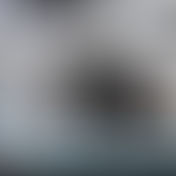Curiosity Rover Accidentally Discovers Pure Sulfur on Mars Surface
- Jenni Adamms

- Jul 24, 2025
- 2 min read
CLEVELAND 13 (WCTU) — NASA’s Curiosity rover has uncovered a discovery unlike anything previously found on Mars. During a routine drive on May 30, 2024, in the Gediz Vallis channel on Mount Sharp, the rover accidentally crushed a rock, revealing bright yellow crystals inside. Follow-up analysis using the Alpha Particle X-ray Spectrometer confirmed that the material was elemental sulfur, a form of sulfur never before detected on the Red Planet.
“Finding a field of stones made of pure sulfur is like finding an oasis in the desert,” said Ashwin Vasavada, Curiosity’s project scientist at NASA’s Jet Propulsion Laboratory in Pasadena.
The find occurred on Sol 4,208 of the mission, when Curiosity’s Mastcam captured detailed images of what was later named the “Convict Lake” rock, measuring roughly 13 centimeters across. The rover’s instruments indicated the presence of other rocks with the same unusual characteristics, suggesting that it had stumbled upon a field of pure sulfur deposits.
Elemental sulfur on Earth is typically linked to volcanic activity, hydrothermal springs, or sour gas reservoirs. Yet Mount Sharp shows no evidence of active volcanism, though ancient floods and avalanches are known to have shaped the region. This anomaly is challenging existing models of Martian geology and raising questions about the processes that might have created and concentrated these sulfur crystals.
Planetary scientist Briony Horgan of Purdue University called the discovery “a very weird finding,” noting that pure sulfur usually originates from volcanic environments on Earth, such as Yellowstone.
Curiosity attempted to drill into nearby bedrock, named Mammoth Lakes, to collect more samples but was unable to preserve the delicate crystals. The rover continues to survey the area to better understand the distribution and origin of the sulfur field.
Scientists emphasize that pure sulfur is odorless, unlike sulfur compounds that produce a rotten egg smell, so there are no concerns about the crystals releasing any odors on Mars.
As Vasavada noted, “It shouldn’t be there, so now we have to explain it.”
--------------
At Cleveland 13 News, we strive to provide accurate, up-to-date, and reliable reporting. If you spot an error, omission, or have information that may need updating, please email us at tips@cleveland13news.com. As a community-driven news network, we appreciate the help of our readers in ensuring the integrity of our reporting.


























































Comments